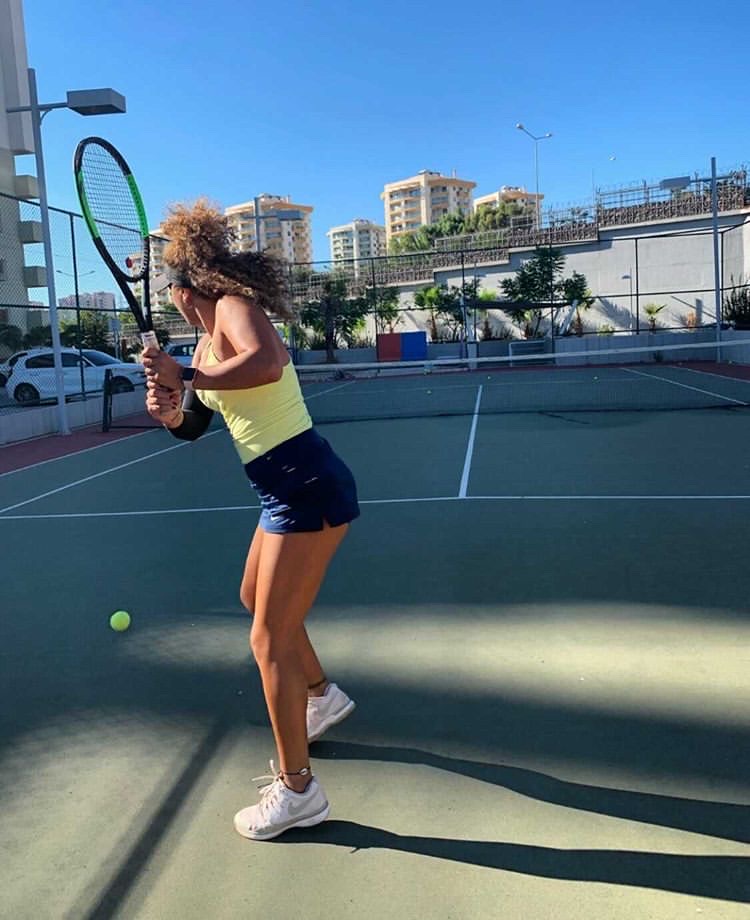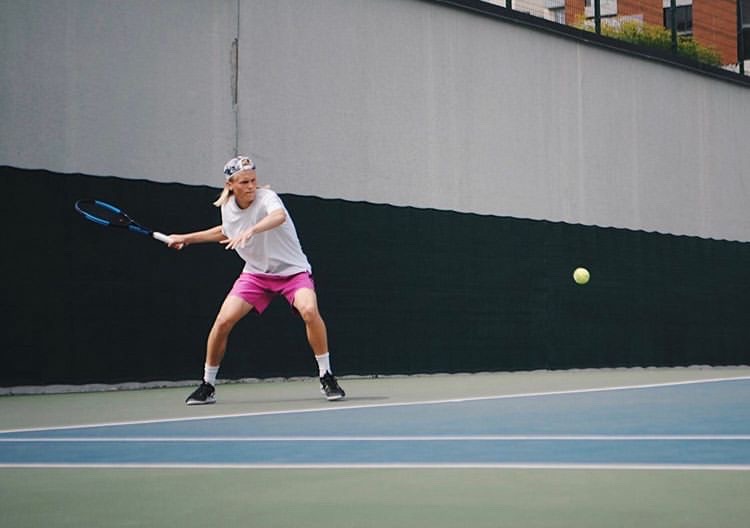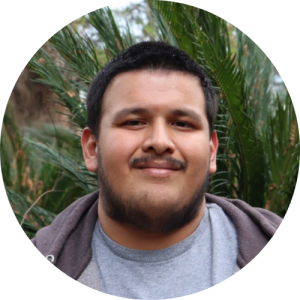International athletes caught between Sac State, home countries
Incoming freshman Rudolfs Akenoks practicing tennis in Latvia. Akenoks will be able to come to Sacramento State’s campus in January. Photo courtesy of Rudolfs Akenoks.
December 10, 2020
Due to the postponement of all fall sports at Sacramento State because of COVID-19, international athletes have had to choose whether to stay in their home countries or return to campus.
“We were allowed to stay, but you needed a plan,” sophomore tennis player Pagie Alter said via text. “But we didn’t know when we would be able to go back home as everything was so unknown, but moving so fast, so we all panicked.”
According to Alter’s teammate, Sac State senior tennis player Ege Tomey, coaches gave returning international athletes the option to stay in their home country or come to campus.
This was not the case for Sac State freshman tennis player Rudolfs Akenoks, who was told he had to stay in his home country of Latvia.
“Unfortunately, I didn’t have an option,” Akenoks said. “The school just couldn’t accept any freshmen from Europe because of some CSU policies, but three days ago, I got some news that we will be able to come to school by New Year’s.”
Story continues below photo.

Alter, who lives in Auckland, New Zealand, decided to stay home until the season started.
“NZ has dealt with the virus exceptionally well,” Alter said via text. “We were free of the virus for 100 days. We were able to go back to everyday life, and I was able to train and go to the gym. We then went into a second lockdown for a few weeks in August, but you were able to play with people who were in your bubble at home, which was my mum.”
All of these athletes’ home countries have had substantially fewer COVID-19 cases than the U.S.
Story continues below chart.
Sac State junior baseball player Martin Vincelli-Simard, from Canada, decided that being around campus was the best place for him.
“As long as the team is able to practice or able to practice with a coach here, I’m going to stay here,” Vincelli-Simard said.
Alter had to adjust to being in a different time zone to keep up with her classes.
“Classes online are extremely difficult to keep up with,” Alter said. “The time zone for me is really difficult as I am a day ahead, so I have to make sure I have a set schedule with all the American times converted to NZ time. I have most of my classes recorded, which I watch in the morning when I wake up, apart from accounting, which is live at 7 a.m. All my classes would be at 3 or 4 a.m. otherwise.”
Tomey, who lives in Izmir, Turkey, said she has had a more difficult time dealing with her classes.
“I was taking an online class before, but this time I’m having hard times with online classes,” Tomey said via text. “Not all professors are good at the online classes, and also I have group projects for every class, and it is really hard for me to get in touch with them, especially when I’m in Turkey (there’s 10 hours difference). I normally have morning classes in U.S. time, but in Turkey, I always have night classes, and sometimes it’s a pretty late night.”
Many of the international athletes’ home countries are open enough to allow them to train. Tomey turned back to her old coach to get her training in.
“I have been able to train during this pandemic,” Tomey said. “Because I still have my old coach in my city and I’m able to practice with them.”
Alter is trying to find a balance between work, school and tennis.
“I am not training too much as I am mostly studying and working,” Alter said. “But I try to fit in my tennis, and I am starting to compete again in NZ.”
Due to a two-week quarantine rule going back to Canada, Vincelli-Simard said he won’t be able to visit his family for the holidays or have his family see him.
“I won’t be able to go back for Christmas,” Vincelli-Simard said. “Since I didn’t want to quarantine up there and then have to quarantine back over here. It’s just a lot of FaceTime calls.”
Meanwhile, Tomey says her future is in question.
“It is my last year, and I didn’t imagine my last years in college would be like this,” Tomey said. “I was supposed to work this summer and find a job after graduation. I know that it’s going to be really hard for me to find a job and stay in America.”
































































































































